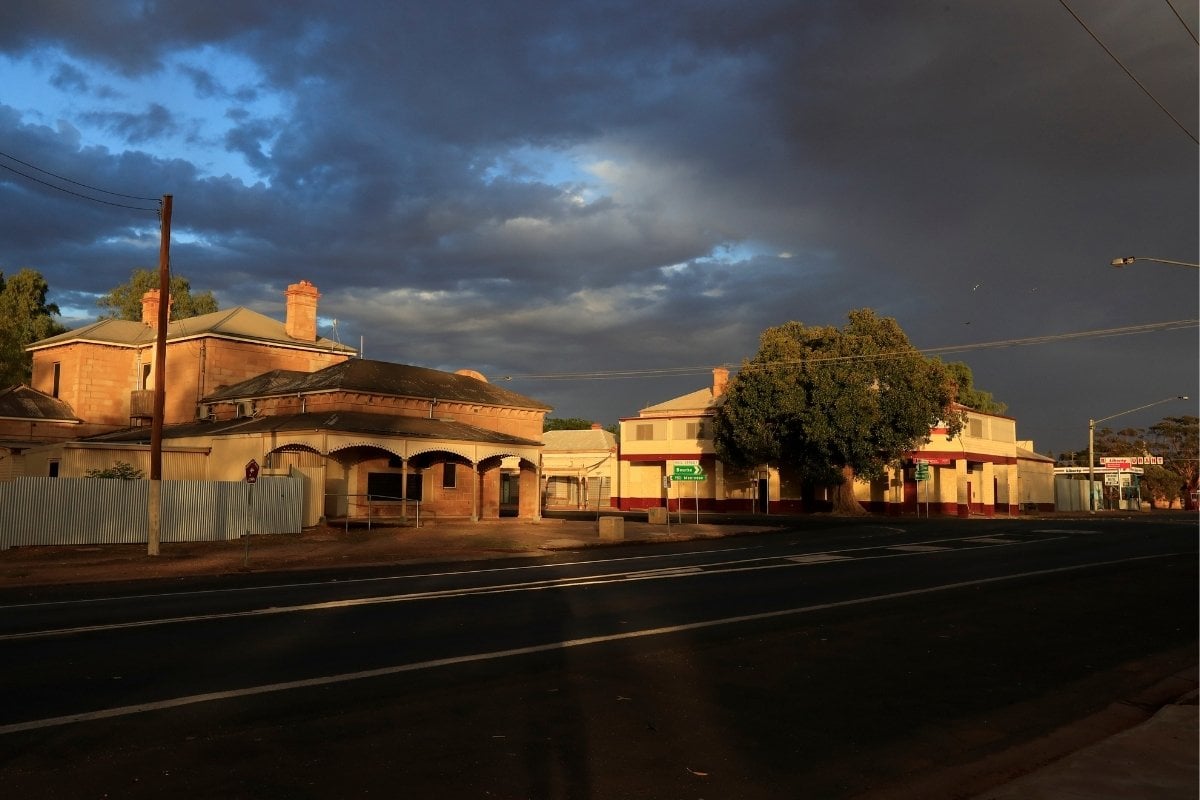
In April 2020, children in the northwestern NSW town of Wilcannia erected handmade signs along the Barrier Highway, urging travellers and truck drivers not to risk bringing COVID-19 into their tiny community.
"Please don't stop. You're dangerous to us," one read.
"It's too dangerous to stop in Wilcannia," read another.
Nearly 18 months later, Wilcannia's fears are being realised.
This small town on the banks of the Darling River, has 70 active cases of COVID-19, which roughly equates to one in every 10 residents battling the virus.
That is the highest rate of COVID-19 transmission anywhere in Australia.
The outbreak has been traced back to a funeral on August 13 when no public health orders were in place prohibiting such gatherings in regional NSW. It is now in lockdown, along with the rest of the state, but the damage is already being done.
"They just have body bags."
Like many regional communities, Wilcannia is a town in a precarious position.
Roughly 60 per cent of its residents are Indigenous; a population identified as more vulnerable to serious illness from COVID-19.
And many large family groups live together under one roof — ripe conditions for transmission of the highly virulent Delta variant of COVID-19.
This also makes isolating incredibly difficult.


Top Comments